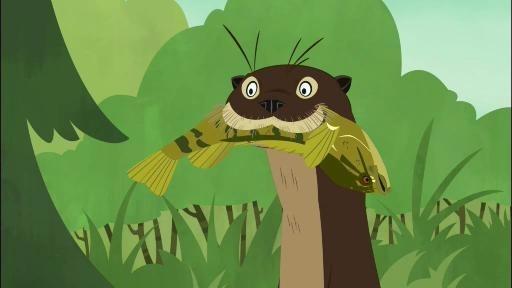I was surprised to come across this yesterday in my search for donations. I hadn’t seen this site before and knew nothing about it, which is rare for beaver news so close to home. Thinking about the Tuleyome website from yesterday, I suspect similarities. The two names aren’t actually linked anywhere I can find, but their location is, and the websites are very similar. Either they have the same technician or they are staffed by a handful of similar people.
Either way, I like them.
The Elder Creek Oak Woodland Preserve is a private preserve soon to be protected by conservation easement that encompasses 233 acres of primarily steep hills of blue oak woodland containing dozens of old-growth manzanitas. This preserve is located in the Elder Creek Watershed, which covers about 150 square miles and ranges in elevation from over 8000 feet to about 250 feet above sea level. Over 72 miles of streams and creeks make up the watershed, making it one of the longer ones on the west side of the northern Sacramento Valley
What we do to encourage beavers on Elder Creek:
• Never kill beavers and encourage others to join us in protecting them.
• Regularly comment to California Fish and Wildlife to prioritize restoration of beaver populations.
• Build small, beaver-like check dams and baffles in the creek in mid- to late spring (depending on flow).
• Leave cottonwood and willow along the creek, occasionally removing dead wood and coppicing some of the willow.
Imagine stumbling across a website like this by accident! I can assure you it made my afternoon.
According to Westbrook, 85 percent of all watercourses in the United States — and a comparable, though unquantified, percentage in Canada — are headwater streams and, therefore, small enough to be dammed by beavers. This continent-wide network of fine blue lines represents a wealth of potential beaver habitat. “We’re talking about beaver in nearly every headwater stream across North America prior to European colonization,” says Westbrook. (from Canadian Geographic)
Beaver streams resulted in:
- Reduced stream sedimentation and erosion
- Stream temperature moderation
- Higher dissolved oxygen levels
- Overall improved water quality
- Increased natural water storage capabilities within watersheds, including recharge of ground water aquifers
- Reduced stream velocities, which means a decreased number of extreme floods
- Removal of many pollutants from surface and ground water
- Drought protection through increased year-round stream flow
- Improved food/habitat for fish and other animals, including 43% (according to one source) of the endangered species that the US Department of Fish and Wildlife is mandated to protect
All these benefits from one little rodent! (Or several million, actually) Beavers are proudly promoted by our new BFF’s at Elder Creek Preserve. Thank you for doing this important work sharing the beaver gospel. Let’s hope is saturates Woodland and begins to sink into Sacramento. (And I mean both the region and the governing bodies it houses.)
On monday we were contacted by a beaver supporter who wanted to donate her grand mother’s old beaver fur coat for us to use in education or rehab. Certainly it’s nothing we have ever considered for ourselves. I have always mocked a very widely used and un-admirable activity folks practice in schools of allowing one student to ‘dress up like a beaver, with a fur coat, goggles and flippers’ to teach them about their adaptions. We would never do that as it seems way more stunt-y than teach-y. And why not teach kids the amazing things about beavers while you have their attention?
But it occurred to me maybe we could teach about the fur trade and the toll it extracted on our streams and wildlife? We never really tried to do that kind of education at a festival, but why not? And maybe while we’re at it teach the martinez story and our creek response with series of display panels folks can look at their own pace. I have been working on a graphic we could use for a poster with the display.  I will say, that Jon and I were both very surprised how soft the coat was. I always imagined beaver as more wiry. And you can definitely see how protective and thick it is. You can’t even see where the individual hairs separate. It also occurred to me that orphan beavers in rehab might like to snuggle up to beaver fur, so I’ve asked our beaver rehabber friend if that’s true and we will consider donating it to Sonoma where they do most of the beaver rehab work.
I will say, that Jon and I were both very surprised how soft the coat was. I always imagined beaver as more wiry. And you can definitely see how protective and thick it is. You can’t even see where the individual hairs separate. It also occurred to me that orphan beavers in rehab might like to snuggle up to beaver fur, so I’ve asked our beaver rehabber friend if that’s true and we will consider donating it to Sonoma where they do most of the beaver rehab work.
We like fur coats best of course ON the beaver, but it might be okay to put it to good use now.






 change. I can’t even claim they were informed by Jari’s awesome PBS documentary, since it aired before it. Please watch all the way through, and share with everyone you know. I wish we could play this at the beaver festival. It’s that good.
change. I can’t even claim they were informed by Jari’s awesome PBS documentary, since it aired before it. Please watch all the way through, and share with everyone you know. I wish we could play this at the beaver festival. It’s that good.










































